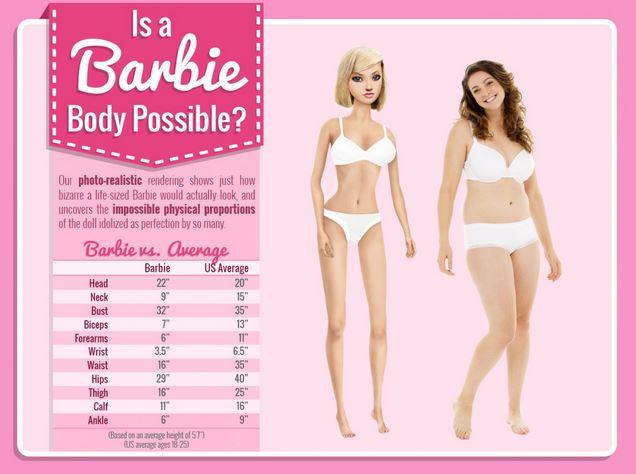hich young men and women are flaunting their “perfect” figures. In reality, many of these images are heavily edited and photoshopped in attempts to accentuate certain body features and make the subjects appear thinner or more muscular — whichever is considered “desirable” in a given instance.
In the media, the way teenagers are portrayed is often unattainable and unrealistic. Men are often shown to be tall and muscular, and women are shown to be very thin and curvy. In magazines and movies they both seem to have beautiful smiles, perfect teeth, and flawless hair and makeup. These unreasonable standards of beauty cause there to be a false perception of the typical adolescent, leading many teenagers to go to extreme lengths to try and make themselves look like the people they see online or in theaters.
“When girls see images of other females on social media wearing skimpy outfits, having a huge thigh-gap and a perfectly flat stomach, then this really makes those girls feel like they must have this if everyone else has them, because they will want to fit in,” said sophomore Maya Finkman.
Companies use the social ideals of teenagers to their advantage in advertising their merchandise. They often promise that that their products can significantly boost the attractiveness of the buyer, which will supposedly lead to an increase in the quality of his or her life. With the help of photoshopped models included in their advertisements, these companies are often able to successfully convince people that their products can and will produce the desired effects.
This recent epidemic of body image obsession can even be traced back to the impossibly perfect Barbie doll. Though a popular toy among young girls, it hardly influenced these targeted consumers positively. Proportions of the doll are skewed enough that “impossibly perfect” is not hyperbolic but accurate:

“Social media has been impacting body image negatively because in order to buy products, companies are creating models of perfection so we believe that we need to achieve that same status.” said senior Jeremy Klein.
Many adolescents have begun to acknowledge the idealistic expectations of young women and men portrayed by the media. Some female celebrities have been willing to show themselves without makeup, and many magazines have acknowledged photoshopping and digitally editing their covers in order to promote more realistic societal expectations.
Seventeen magazine has even gone so far as to stop digitally altering all of their images, in an effort to promote “all kinds of beauty”, according to CNN.
In addition, actress Melissa McCarthy has had a very successful comedic acting career despite having been passed over for certain roles due to her size. Her success has helped break the mold for other actors and actresses and proves that personality and talent are far more important than just looks.
“I’ve never felt like I needed to change. I’ve always thought, ‘If you want somebody different, pick somebody else’” McCarthy said in an interview with People magazine.






